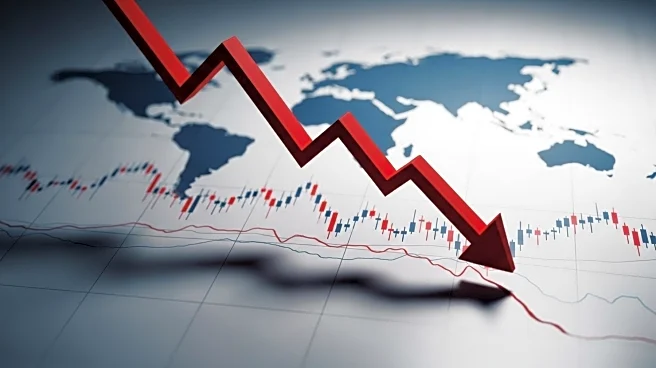What's Happening?
U.S. stock markets experienced significant declines on Friday, with the S&P 500 dropping 2.7%, the Dow Jones Industrial Average falling 1.9%, and the Nasdaq composite losing 3.6%. This downturn followed President Trump's announcement of potential tariff increases on Chinese imports, in response to China's restrictions on rare earth exports. The markets had been poised for gains earlier in the day but reversed course following the tariff news. The recent market volatility comes after a period of sustained growth, with stocks reaching record highs.
Why It's Important?
The sharp decline in stock markets underscores the sensitivity of financial markets to geopolitical tensions and trade policy announcements. Tariffs can have wide-ranging effects on global trade, impacting supply chains, corporate earnings, and consumer prices. The threat of increased tariffs on China could exacerbate trade tensions, potentially leading to retaliatory measures and further market instability. Investors and businesses are closely watching developments, as prolonged trade disputes can hinder economic growth and investment strategies.
What's Next?
Market participants will be monitoring any further announcements from the Trump administration regarding trade policy with China. The potential for increased tariffs could lead to negotiations or retaliatory actions from China, affecting global trade dynamics. Investors may adjust their portfolios in response to ongoing trade uncertainties, seeking safer assets or diversifying investments. Economic analysts will continue to assess the impact of trade policies on market performance and economic growth.








